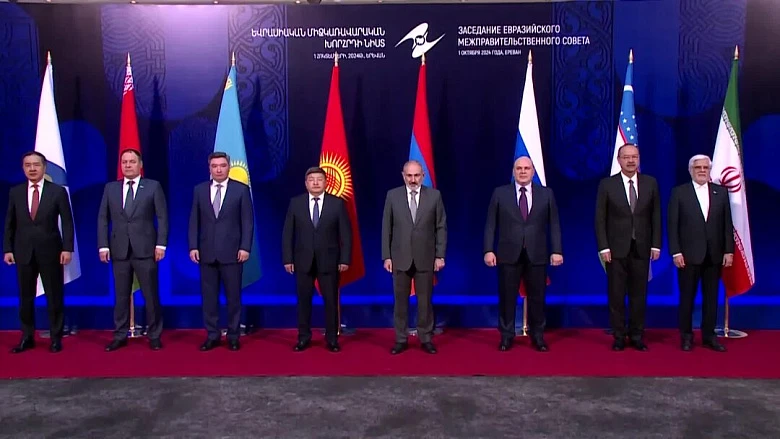At the recent Eurasian Intergovernmental Council in Yerevan, Uzbek Prime Minister Abdulla Aripov stood out as one of the most prominent figures.

Although the observer status might suggest a lack of vigorous activity, Aripov was determined and did not miss a single important aspect of the summit. He concluded his mission by signing a plan for joint activities with the Eurasian Economic Commission for the years 2024–2026.
It was evident that Abdulla Aripov aimed to establish practical relationships with partners in the EAEU, overcoming formal barriers. This included matters related to customs, finance, public procurement, antitrust regulation, industry and agriculture, energy and transport, veterinary and sanitary measures, phytosanitary measures, and consumer rights protection.
“Since the rise of Shavkat Mirziyoyev to power, Uzbekistan has been pursuing a proactive and goal-oriented policy in its relations with its closest economic partners. The wait-and-see tactic is a thing of the past,” notes Vladimir Berezovsky from the Center for International and Socio-Political Studies “Caspian-Eurasia.” “For instance, within the framework of the CIS, Tashkent has proposed 90 practical initiatives for the development of multifaceted cooperation. To date, 80 of these have been implemented.
Uzbekistan has become a diplomatic center of the Commonwealth, where meetings of statutory bodies and sectoral cooperation structures are held regularly. It is also no coincidence that in 2024, Tashkent was declared the youth capital, and Samarkand the cultural capital of the Commonwealth.
Under the auspices of Tashkent, during its presidency, the Strategy for Economic Development of the CIS until 2030 was adopted.”
Indeed, within the EAEU, Uzbekistan cannot fully engage, but the current CIS, where Ukraine and Moldova have long "dried up," allows Tashkent to feel on equal footing with other partners.
Observers in Yerevan noted Abdulla Aripov's proposal regarding migration. He agreed to exchange digital data on migrant workers to enhance control over them. According to him, Uzbekistan is interested in mutual recognition of electronic documents.
Aripov also expressed a desire to share information about socially vulnerable groups outside the country, presumably referring to the families of migrants.
It is worth recalling that the Russian Interior Minister Vladimir Kolokoltsev was in Tashkent and insisted on the implementation of the 2021 agreement to provide access to the databases of CIS countries to better control the migration flow into Russia. Following this, there were notable deportation actions at Moscow's Vnukovo airport, where 90 people were turned back from a Tashkent flight. Now, fingerprinting and photographing of arriving foreigners have begun.
It seems that Aripov has proposed a compromise on this issue, as there is currently no discussion of mass labor migration to Uzbekistan.
All of this further illustrates that Uzbekistan is seriously and long-term committed to a policy of rapprochement with the EAEU. Its economic attraction is too significant, enabling the republic to find new markets for its products and generous investments.